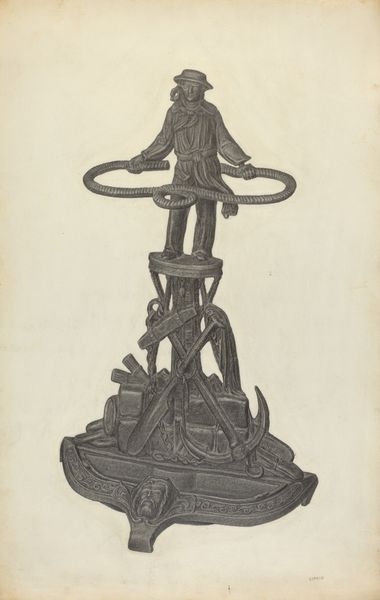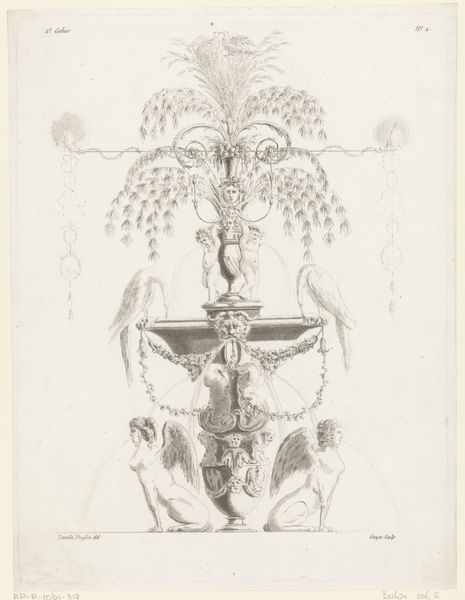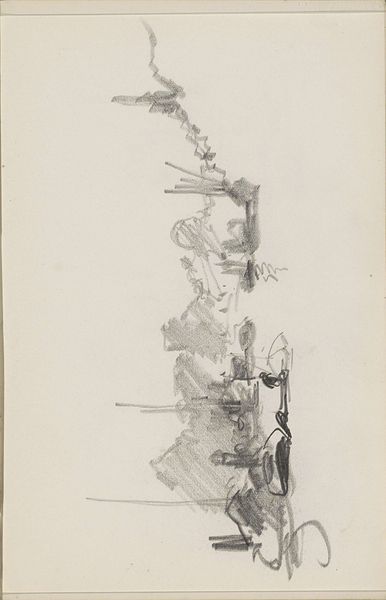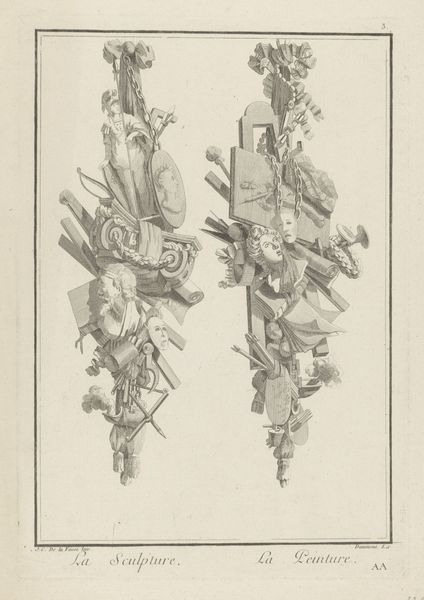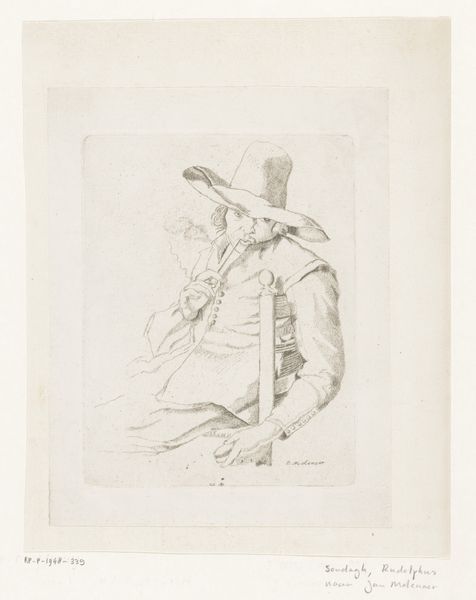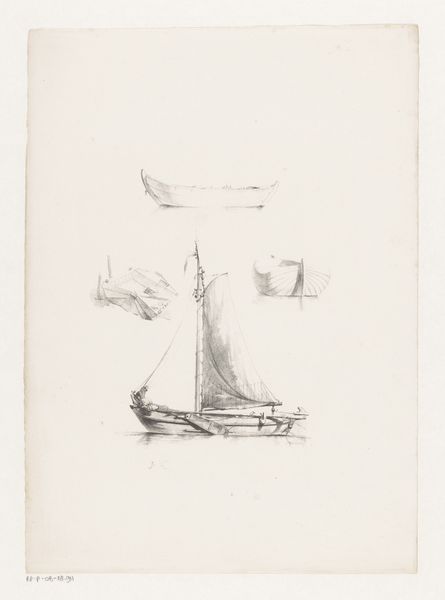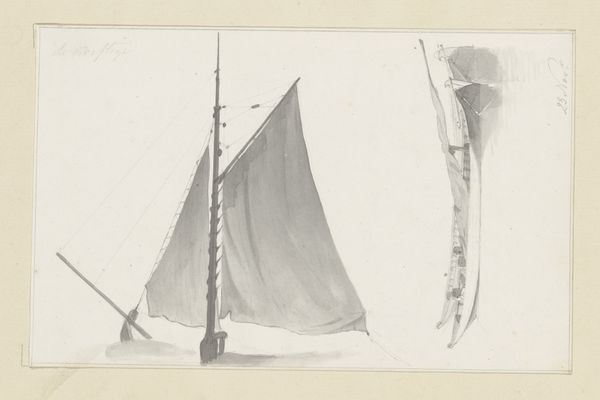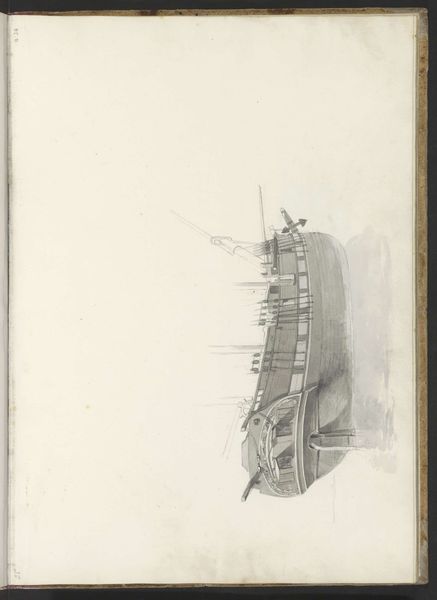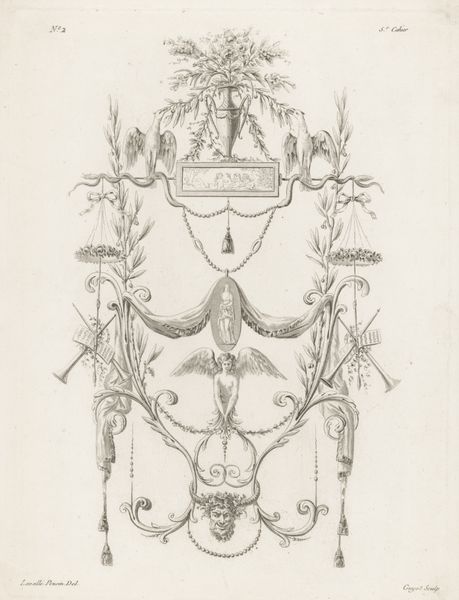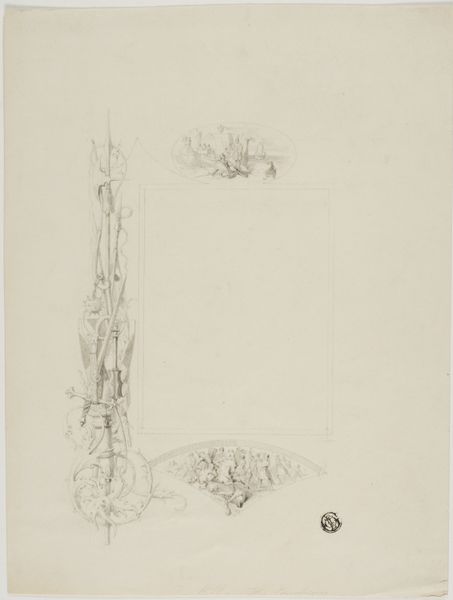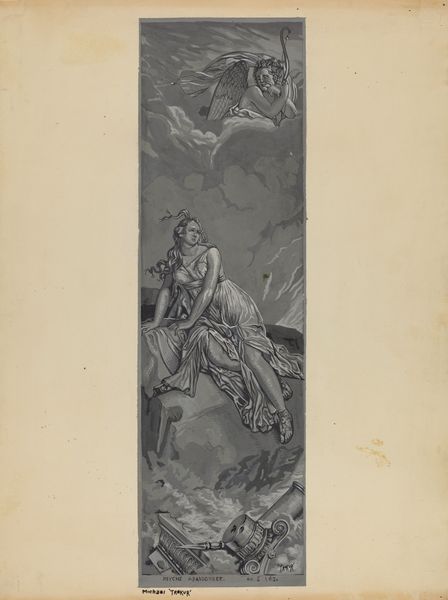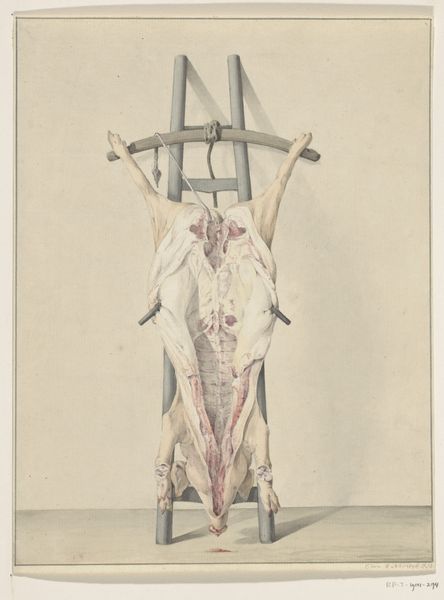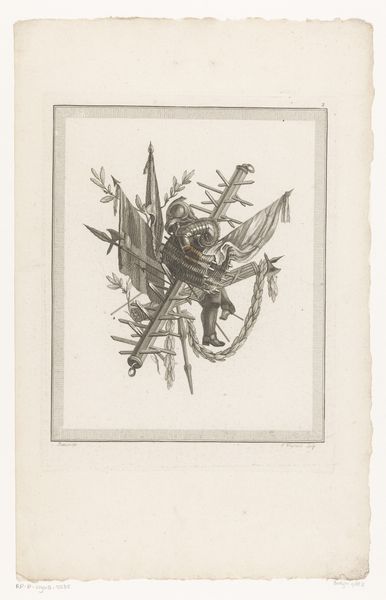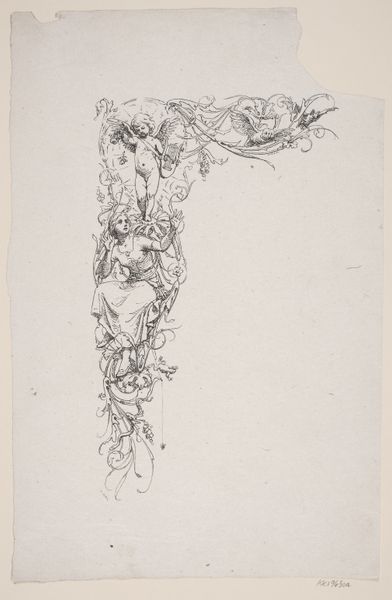
drawing, pencil
#
pencil drawn
#
drawing
#
16_19th-century
#
pencil sketch
#
pencil
#
pencil work
#
academic-art
#
realism
Dimensions: height 283 mm, width 194 mm
Copyright: Rijks Museum: Open Domain
Curator: Here we have Jean Bernard's "Geslacht varken," dating from 1801. Editor: Striking! My immediate thought is how clinical and raw this rendering is. The cold precision of the pencil lines is quite confronting, presenting the butchered pig almost as a diagram. Curator: The drawing is definitely imbued with a disquieting realism characteristic of academic art. What's particularly fascinating is the unflinching gaze at animal butchery during a time of shifting agricultural practices and burgeoning industrialization, and emerging discourses around animal welfare, situating it within broader political conversations of power. Editor: Right. And if we focus on the materiality itself, consider the labour involved, tracing each form with such meticulous detail. The choice of pencil also is so vital – an accessible, everyday material – connecting high art to the lived realities of meat production. How does its availability and association with draftsmanship influence its message? Curator: That connection between material accessibility and the everyday reality it portrays resonates deeply. It seems pertinent when discussing societal constructions of beauty and what’s worthy of artistic rendering, challenging hierarchical value systems and norms around representation, consumption and social class. Editor: Absolutely! It almost removes the romantic veneer often associated with art, pushing us to acknowledge the often brutal processes behind everyday items. It confronts us with the sheer materiality and reality of where our sustenance comes from, while forcing us to acknowledge death and labor. Curator: Ultimately, it provokes complex questions about our relationship with the natural world, reminding us that even the most ordinary subjects can be platforms for radical reflection. Editor: Indeed. Looking closer at the production—pencil on paper—opens a new, more politically-charged space within this image that goes far beyond just the rendering.
Comments
No comments
Be the first to comment and join the conversation on the ultimate creative platform.
